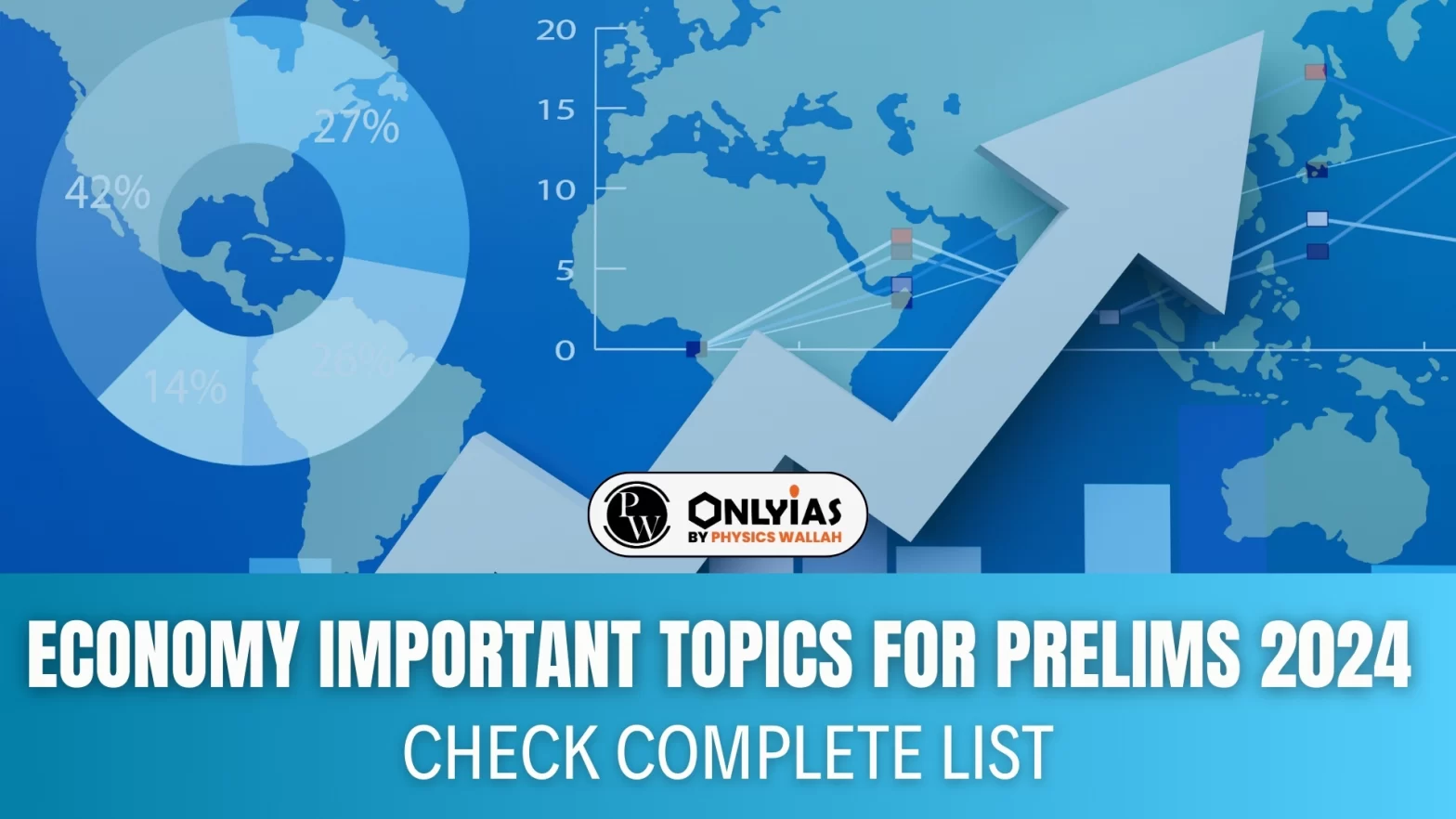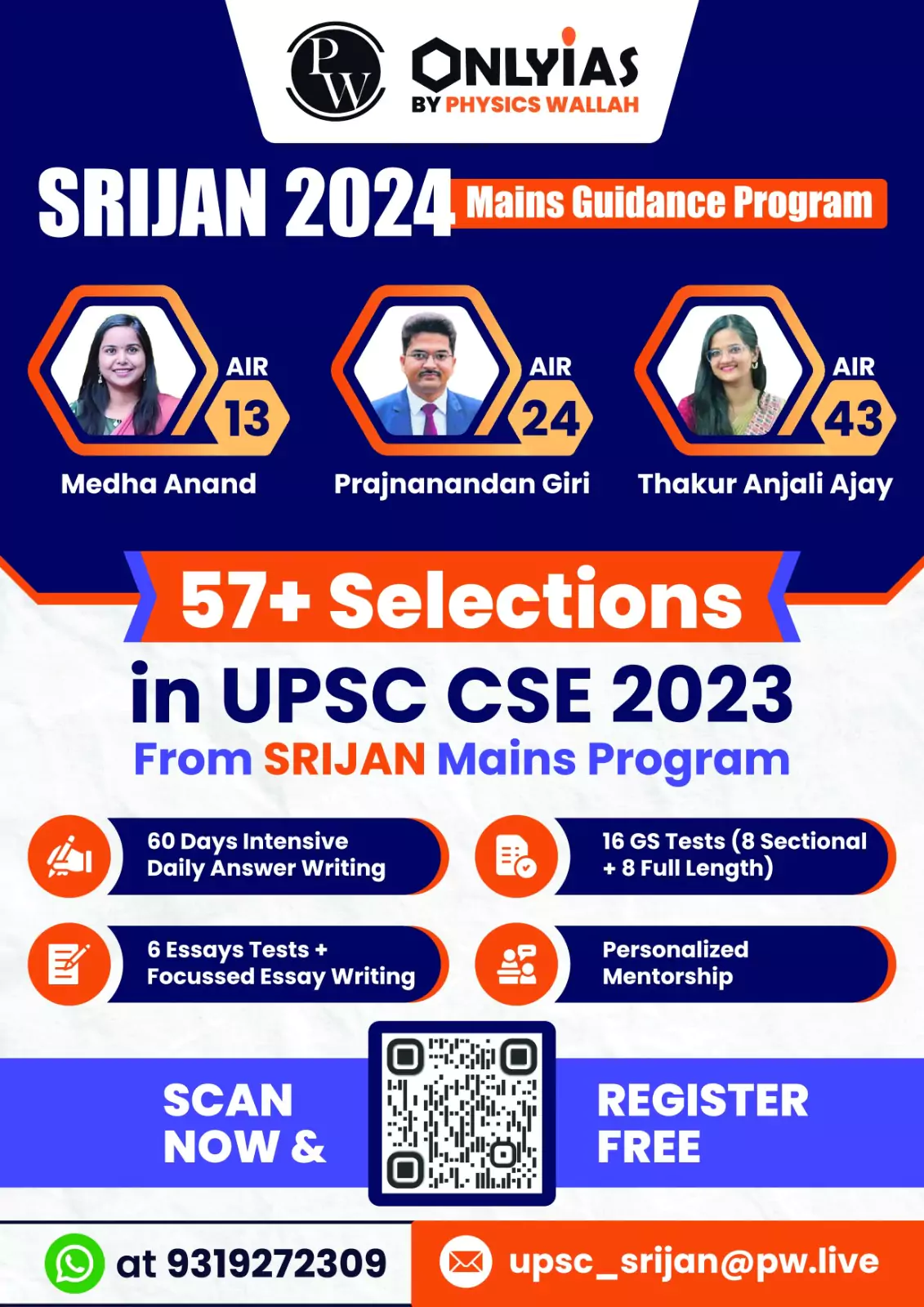Economy important topics for prelims 2024 will be useful for candidates appearing for UPSC CSE prelims Exam 2024. Check the Economy Important Topics for Prelims 2024.

Economy important topics for prelims 2024 is a useful tool for candidates preparing for prelims 2024. It will help them identify important topics and revise them thoroughly before the exam. Economy has a significant weightage for UPSC prelims in General Studies paper I. Roughly 15-20 questions appear every year about the economy and its associated topics.
UPSC prelims economy subject involves study of basic concepts of economics, current economic trends in India, growth-related topics, etc. majority of the topics have close links with current affairs. Therefore, identifying the most-important topics will help you attempt the maximum number of questions from this topic.
Let us have a look at the Economy Important Topics for Prelims 2024, and the importance of these topics. The preparation strategy for the Economy Important Topics for Prelims 2024 is also given here.
Before knowing about the Economy Important Topics for Prelims 2024, the candidates should know the overview of the Economy subject in UPSC Prelims.
The following table consists of information about Economy in UPSC prelims 2024:
| Name of Examination | Civil Services (Preliminary) Examination 2024 |
| Economy Subject in UPSC Prelims | General Studies (Paper 1) |
| Average Weightage of Economy in UPSC Prelims | 15-22 Questions |
| Level of Difficulty | Moderate to Difficult |
| Relevance of Current Affairs | Useful to predict most likely questions to be asked |
Important Economic topics for prelims 2024 will involve the study of major economic developments that have occurred over the past few years. In addition, revising the core topics is also important due to UPSC’s increasing focus on basics. The following table contains a break-down of economic topics for prelims 2024.
| Topics | Sub-Topics |
| Basic Economic Concepts |
|
| Economic Sectors |
|
| Inflation and Related Concepts |
|
| Monetary Policy |
|
| Fiscal Policy |
|
| Planning in India |
|
| Growth and Development |
|
| Trade |
|
| Banking in India |
|
| Capital market |
|
| World Organizations |
|
Economics as a subject carries significant academic weightage. In addition, it plays an important role in policy-making. The year-wise breakdown of number of economy question in UPSC prelims is as follows:

| Year | Number of Economy Questions |
| 2023 | 14 |
| 2022 | 14 |
| 2021 | 16 |
| 2020 | 15 |
| 2019 | 14 |
| 2018 | 18 |
| 2017 | 16 |
Candidates will require a certain strategy in order to attempt the maximum number of economy questions in prelims 2024. These strategies will also increase the accuracy level of attempted questions from the economy syllabus.
Appearing for UPSC Prelims 2024? Boost your score by enrolling in a quality test series from Physics Wallah!
The difficulty level of questions asked in UPSC prelims is between moderate to difficult. However, the difficulty level of the Economy questions may vary depending upon the difficulty level of the overall exam.
Economic concepts that are prevalent in news have high chances of being asked in the exam. Identify those topics and prepare accordingly.
Candidates will have to make short notes during the reading phase. Before the exam, they will have to identify important topics from current affairs and revise them.
Candidates beginning their preparation can start with NCERT books. Later they can move on to reference books such as ‘Indian Economy by Ramesh Singh’.
The Economic subject has close linkages to policy-making. This is the reason the subject has significant relevance for civil servants.
<div class="new-fform">
</div>